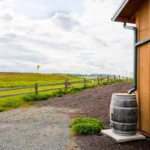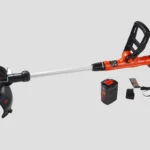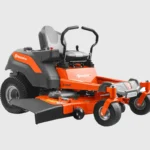Sustainable gardening is more than a trendy buzzword; it’s a commitment to partnering with nature to foster a healthier environment right in your backyard. By embracing practices that reduce environmental impact, gardeners can cultivate their green spaces not just for beauty and yield but also as thriving ecosystems that support local wildlife and conserve precious resources.
Soil Management
Imagine turning your kitchen scraps and yard debris into nutrient-rich compost that acts like a superfood for your garden. Composting is a powerhouse process that enriches the soil, helps retain moisture, and suppresses plant diseases and pests.
By managing your own compost, you not only cut down on landfill waste but also provide your plants with the nutrients they need to flourish—without the chemical runoff that can harm local fauna and waterways.
Also, before you go pouring fertilizers on your garden, consider this: your soil might already have what your plants need. A simple soil test can tell you exactly what your garden is hungry for, which saves you from the guesswork and excess that often leads to over-fertilization.
By tailoring your soil amendments to the specific needs of your soil, you’re not just optimizing plant health; you’re preventing nutrient runoff that can pollute local waterways.
Water Conservation
When it comes to watering, timing isn’t everything, but it’s a lot. Watering your garden in the early morning minimizes evaporation and ensures that plants have the moisture they need to get through hot days.
Use soaker hoses or drip irrigation systems for efficiency—these methods deliver water directly to the soil, reducing waste and preventing the spread of leaf-borne diseases.
Installing a rain barrel is like setting up a savings account for water; it’s there when you need it. By collecting runoff from your roof, you can keep your garden thriving during dry spells without tapping into municipal water supplies. Plus, rainwater is often “softer” than tap water, lacking in salts and chemicals, making it better for many garden plants.
Choosing the Right Plants
Opting for native plants isn’t just about flying the local flag; it’s about setting the stage for a garden that requires less water, fewer fertilizers, and minimal pesticides. These plants have evolved to thrive in your climate and soil, which means they’re more likely to flourish with less fuss.
Plus, they’re a buffet for local pollinators. By planting natives, you’re not just gardening, you’re restoring a piece of the ecosystem.
While exotic plants might look pretty, many have a tendency to spread uncontrollably, choking out locals and disrupting habitats. By choosing non-invasive species, you’re keeping your garden in harmony with the surrounding landscape. It’s like being a good neighbor in the plant community—respecting boundaries and sharing the space equitably.
Sustainable Landscaping Materials
When it comes to building garden paths, decks, or borders, think beyond aesthetics. Opt for materials that are not only durable but also environmentally responsible. Recycled plastic lumber, reclaimed wood, or local stone can minimize your ecological footprint. These materials reduce the demand on virgin resources and decrease the waste and pollution associated with their production and transportation.
Plastic might be handy, but it’s hardly friendly—either to the environment or to your garden. Consider using alternatives like biodegradable plant pots made from rice hulls or coconut coir. Not only do these materials break down naturally, but they also blend back into the earth, enriching the soil rather than cluttering up a landfill.
Supporting Biodiversity
Invite the birds and the bees, and not just figuratively. Setting up bird feeders, installing a small pond, or leaving a section of your garden a little wild can attract and support diverse wildlife. These visitors can help with pollination, pest control, and they add vibrancy to your garden—a win-win for nature and for you.
Turn the ‘pest’ narrative on its head by integrating pest management strategies that encourage natural pest predators. Instead of reaching for the insecticide at the first sign of bugs, why not welcome ladybugs and lacewings who are eager to snack on those aphids? It’s about shifting from pest control to pest partnership. This not only maintains a natural balance in your garden but also reduces your reliance on harmful chemicals.
Adapting to Climate Change
As the climate shifts, so too must our gardening techniques. Adapting your garden for resilience can be as simple as selecting heat-tolerant varieties of your favorite plants. Consider species that can withstand a drought or two, because they’ll be your garden’s best friends when the mercury climbs.
Also, adjusting planting schedules can help; for example, planting a bit earlier in the spring or later in the fall to avoid peak heat periods.
Mulch isn’t just for looks—it’s a garden’s suit of armor against the heat. A good layer of organic mulch, like shredded bark or straw, can dramatically reduce water evaporation from the soil, keep plant roots cooler, and add back nutrients as it decomposes. Think of it as a moisturizer for the earth, keeping it cool and nourished.
DIY Sustainable Gardening Projects
Why buy new when you can repurpose with a twist? Turn old pallets into a charming vertical garden or convert discarded boots into quirky planters. These projects not only save items from the landfill but also add a touch of whimsy and conversation to your garden spaces. Plus, it’s a great way to engage the family in eco-friendly activities.
Creating a raised garden bed? Use reclaimed wood from an old fence or barn. Not only does this recycle the material, but it also brings a story and a bit of history to your garden. Raised beds improve drainage and can make gardening easier on the back—double win!
Implementing sustainable practices in your garden transforms it from a mere plot of land to a thriving eco-haven. From the soil up to the biodiversity that populates it, every choice can contribute to a healthier planet. We’ve walked through everything from water conservation to supporting local wildlife, all geared towards empowering you and your garden to be part of the global solution to environmental challenges.

Matthew Dowell
Matthew, a seasoned builder from a family of craftsmen, leads Tools Trove. His passion for tools and decades of hands-on experience fuel his commitment to providing expert reviews and insightful content. Whether you’re a pro or a DIY enthusiast, Matthew’s guidance ensures informed decisions in the world of tools.




